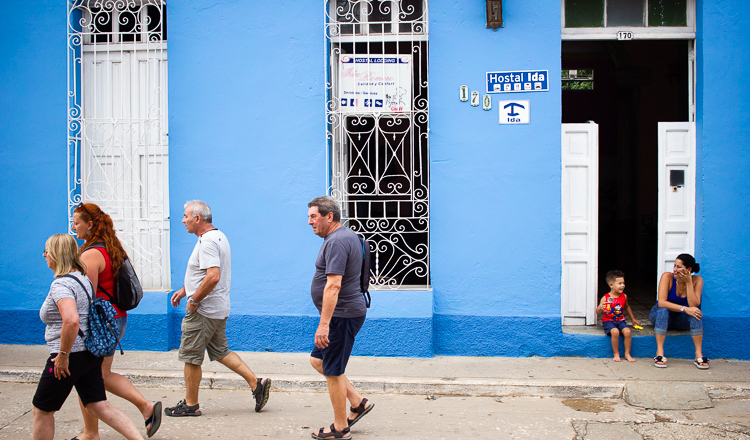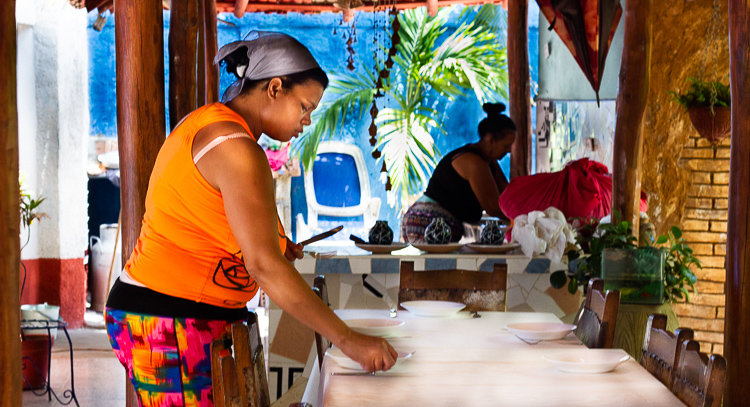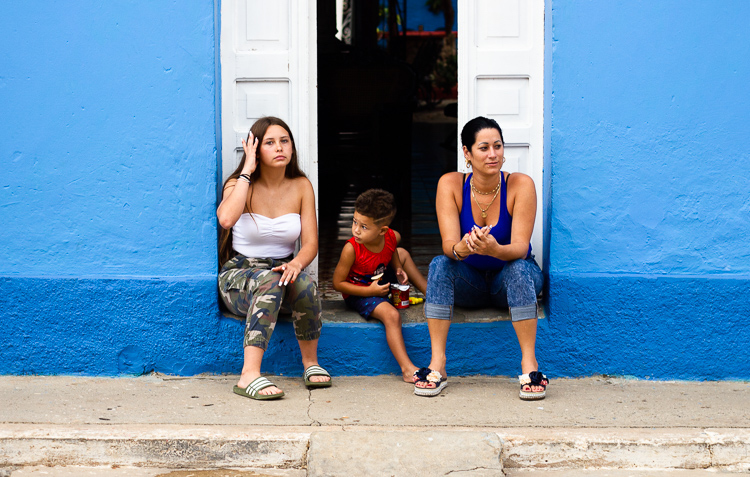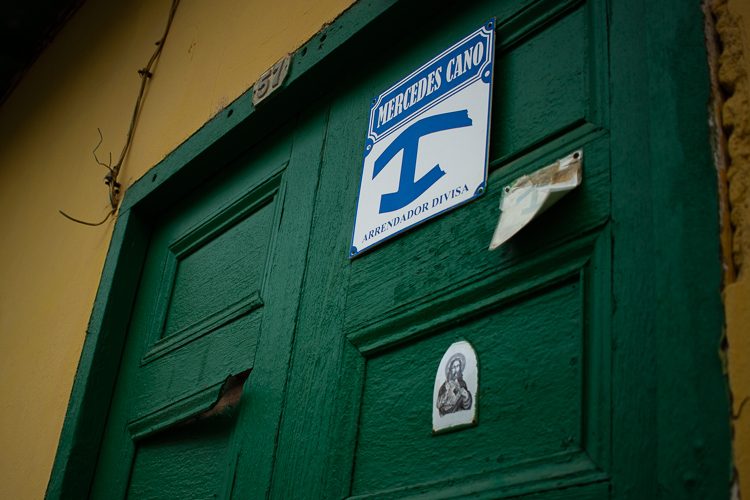While generally travelers might claim they want to experience other cultures, many stay in nice hotels and visit all the tourist attractions while ignoring the real parts of their destinations. In Cuba, however, foreigners can stay in homes run by residents of the nation. In some, tourists live among their host family, while others are more like Airbnbs where the vacationers never see the owners. These relatively new lodges, called casas particulares, can benefit both visitors and citizens, giving each a new intercultural relationship.
After the Soviet Union collapsed in 1992, Cuba no longer received financial support from the bloc. To make up for this lost money, the government allowed some of its citizens to operate a form of private business, including the casas particulares. The Trinidadian government selected the locally well-known Bastida family to host Trinidad’s first casa particular in 1996.
Originally, the government kept a tight hand on the casas. Julio Muñoz, a local personality known for his photography who opened his in 1999, said at first, they could only rent two rooms at a time and rooms could not be rented to diplomats. “I received more income, but at the same time, more stress,” said Muñoz.
These rules changed, as well as one prohibiting the hiring of employees (Muñoz now has two and Arlettys Romero, another Trinidadian casa owner, has five total that rotate in and out of active employment.) After shifting the requirements in 2014, more casas appeared outside the historic center of Trinidad.
Even with the loosening of guidelines, the homes must still meet certain standards. They need hot water, air conditioning and an open space to gain government approval. And although the casas allow Cubans to make some extra money, Romero said that the business does not make her rich—she still must pay many taxes and fees to the Cuban government, as well as her employees. These payments leave her with only about thirty percent of what she’s earned.

Arlettys Romero sits at her casa doorstep with her son | Daniel Quigley
After cutting through this red tape, owners can hang a blue anchor symbol on a white sign outside, showing that tourists can stay in the house.
But casas provide more than just lodging. Many include breakfast in the cost, although Muñoz does not. Occupants can sometimes purchase other meals at the casas, laundry services and cigarettes.
Romero has mixed feelings about working in the casa industry. She said she does not enjoy having to always be available to her guests, which keeps her around the house instead of out and about, “It is like slavery.”
But she does believe the business is the best one to be in in Cuba. “It is the cleanest and most legal business we have,” said Romero.

Romero’s cook sets the table for guests | Daniel Quigley
Muñoz expressed more positive feelings. “It’s an interesting way to get income, because, for a long time, for the Cuban, it was very difficult to travel abroad,” said Muñoz. “So starting to have people in the house from other countries gave us the possibility to learn about what, in the real way, what is happening outside Cuba.”
Through hosting, Muñoz learned about photography from his guests, a skill he’s used to form a side career that led him to be one of the few Cubans selected to meet President Barack Obama in 2016. “I can be a photographer now because I had in my house very good photographers,” said Muñoz.
Even though there can be a positive exchange between locals and guests, sometimes visitors can cause problems. Romero said she deals with all kinds of people, “some are very communicative and want to learn more about Cuba but others do not even want you to look at them”. She also said that some male tourists want to bring Cuban women into her house, and she even had one client who refused to pay, claiming they stole from him.

Romero, her son and her niece sit outside the casa | Daniel Quigley
Muñoz mentioned lesser difficulties. He said that tourists sometimes have too high expectations, desiring Wi-Fi or food products that Cuba does not have. “Sometimes they expect to have things here which is normally in other country,” said Muñoz.
He once joked with a Swiss guest that his pet goat Lulu would be dinner that night, which made the tourist very upset. “She started to cry and say that please, she will buy the goat but please don’t kill it”.
Travelers desire to remember their destinations in different ways like buying souvenirs or taking lots of pictures. After the trip these things, though material, remind them of the intangible memories they made. But trinkets and pretty photos are not as memorable as relationships formed. After returning to their particular homes, tourists still will remember their casas particulares and the people inside them.
Edited by Julissa Ramirez.

